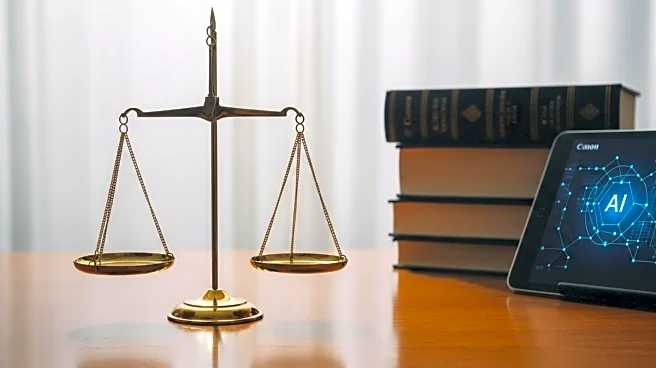What is the story about?
What's Happening?
A law firm representing the Puerto Rico Soccer League in an antitrust lawsuit has been ordered to reimburse $24,000 in legal fees to FIFA and other defendants. The order was issued by Chief U.S. District Judge Raul M. Arias-Marxuach after the court found that the plaintiff's legal briefs contained numerous erroneous citations, which appeared to be generated by artificial intelligence. The judge highlighted that the motions included at least 55 incorrect citations, necessitating extensive verification work by the court. Despite the plaintiff's counsel denying the use of generative AI, the judge questioned this claim due to the high number of inaccuracies. The errors were deemed violations of Rule 11 of the Federal Rules of Civil Procedure and relevant ethical standards.
Why It's Important?
This case underscores the growing challenges and ethical considerations associated with the use of artificial intelligence in legal practice. The sanctions serve as a cautionary tale for legal professionals, emphasizing the importance of verifying all citations in legal documents to avoid potential penalties. The incident highlights the potential risks of relying on AI-generated content without thorough human oversight, which can lead to significant financial and reputational consequences for law firms. As AI becomes more integrated into various industries, including law, ensuring accuracy and compliance with professional standards remains crucial.
What's Next?
The ruling may prompt law firms to reassess their use of AI tools in legal research and document preparation. Legal professionals might increase their scrutiny of AI-generated content to prevent similar issues. Additionally, this case could lead to broader discussions within the legal community about the ethical use of AI and the need for guidelines to ensure compliance with legal standards. Firms may invest in training and resources to better understand AI capabilities and limitations, aiming to mitigate risks associated with its use.
Beyond the Headlines
The incident raises questions about the reliability of AI in professional settings, particularly in fields where precision is paramount. It may spark debates on the balance between technological advancement and ethical responsibility, as well as the role of AI in transforming traditional practices. The case could influence future regulations on AI use in legal contexts, potentially leading to stricter oversight and accountability measures.















